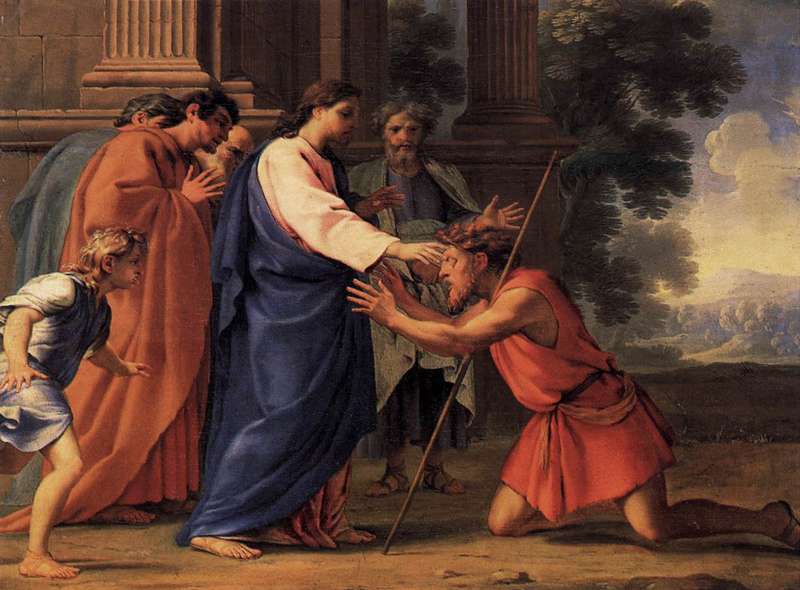
One common question posed to the Catholic Church is why non-Catholics are asked not to receive Holy Communion. Someone once observed that not welcoming everyone to Communion was like inviting someone for dinner, but not feeding them.
To understand why the Church asks some not to come forward for Holy Communion we need to look no further than Sacred Scripture. On the 30th Sunday of the Liturgical Year the Gospel reports that Jesus healed a blind man named Bartimaeus.
It would be a mistake to read Jesus’ healing miracles exclusively as physical restorations. If that’s all Jesus did, then it would reduce His power to a small window of time seldom experienced contemporaneously.
Already in the Old Testament, deficiency was equated with a spiritual glitch. Consider that 600 years before Christ, Jeremiah reported that God promised He would gather from the ends of the earth the lost 10 Northern Tribes of Israel “with the blind and the lame in their midst.” At the same time through Isaiah God reminded His people that they often see, but do not see, and hear, but do not hear.
Blindness, deafness and all other physical paucities had taken on a spiritual meaning. This is why the blind, deaf and disabled were outright barred from entering the temple. It was thought that God, source of all health, well-being and blessing, was not with someone who, in any way, was impaired. They reasoned that their presence in sacred spaces would diminish its purity.
When Jesus was asked why He taught in parables He paraphrased Jeremiah and quoted Isaiah, saying “because they look, but do not see, and hear, but do not listen.” All of Jesus’ healings were parables, called “signs” in John’s Gospel, which were meant to point beyond themselves to deeper meanings. In John 9, Jesus instructed a blind man to wash in the pool of Siloam and when he did, he came back able to see.
In that restoration of sight, Jesus pointed sacramentally to baptism, where spiritual blindness gives way to the light of God’s guiding spirit in believers. None of this was lost on the first Christians. They recalled how Jesus fed the multitudes to foreshadow the Eucharist, but also how He only celebrated the Last Supper with His closest followers.
Sacraments are necessary first steps to communion with the Lord. Seeing, hearing and doing in conformity with the Word of God are as well. In 1 Corinthians, St. Paul encourages believers to live like Christ. If they haven’t, and receive the body and blood of the Lord, they then eat and drink their own accusation, says Paul.
In the United States equal access and commensurate outcomes are held sacred. In the spiritual life it is not so simple. Somehow blind Bartimaeus could see Jesus as the Messiah and, once reconciled, followed Him on “the way.” To follow is to be a disciple. Anything else risks making gods of ourselves. If we entrust ourselves to God, He will admit us to places previously closed.

